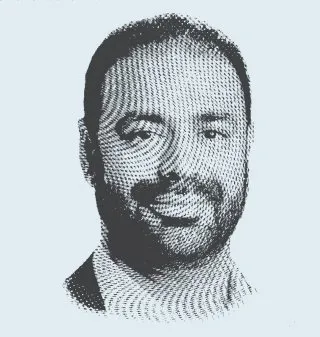Rarely does local, regional and international attention shift to one man. This only happens at major turning points. It is no simple feat for a man in his 40s to arrive at the Umayyad Mosque square in Damascus to end over half a century of the Assad family’s rule in Syria. The Syrian Baath was ousted by Syrian hands. The development may have consequences that overshadow that of the overthrow of Saddam Hussein during the US invasion of Iraq.
The scene was monumental or terrible. Ahmad al-Sharaa at the Umayyad square and Bashar al-Assad beginning his exile in Russia. What makes this even more fascinating is that Sharaa is not some stranger. The world knew him before as Abu Mohammed al-Golani. He was a wanted man, and many followed his journey with Abu Mosab al-Zarqawi and Abu Bakr al-Baghdadi before he broke off from them. Al-Qaeda, ISIS and al-Nusra Front were the groups making headlines during that time before he settled on Hayat Tahrir al-Sham.
The Syrians, people of the region and the world have the right to know what his plans are. What does Sharaa want? Does his rebranding reflect an actual change in his behavior and thinking? What kind of Syria does he want? Will he be able to run the factions that carried him to Damascus and labeled him the “strongman” in Syria until another titles is bestowed upon him?
Will he be able to rein in his comrades who are seeking war here and there? Has the HTS really changed during all those years in Idlib? Is it ready to reconcile with the reality of Syria’s demographic fabric, regional balances and international conditions? Some believe that Syria can live with the new version of Ahmad al-Sharaa, but it will not be able to live under what Abu Mohammed al-Golani represented.
Questions. Questions. Questions. Are the conditions available for the establishment of a Syria that is built on institutions, national loyalties, the rule of law and justice away from revenge and settling of scores? What about the Sunnis, Alawites, Druze and Christians? What about the Arabs and Kurds? What about human and women’s rights, personal freedoms and curricula?
A united Syria must focus on combating poverty and catching up with development and progress. A Syria that lives within its borders without any delusions about an aggressive regional role and exporting a model that none of its neighbors want. What about Syria’s relations with its Arab fold, Iran and Türkiye? What about its position from Israel? Sharaa had made assurances, but they need clearer statements and firmer assertions.
Sharaa’s appearance at the Umayyad square completed the image of the earthquake: Syria without Assad, without Iran and without Hezbollah. The Axis of Resistance was forced into retirement - at least for now. The Tehran-Beirut route, which Qassem Soleimani had shed blood and spent billions to pave, has been firmly severed. Assad’s toppling returned Hezbollah to the Lebanese map and its leader is acknowledging that supply routes, which were vital for its regional role, have been cut. We are standing before a new Syria and a new Lebanon.
Sharaa’s appearance sent warning bells ringing in nearby capitals. Syria is connected to the region and its future affects security, stability and balances. Baghdad feared that the reversal of equations in Syria would open the appetite of those keen on flipping the script in Iraq. Amman feared that Syria was headed towards a thorny path, so the Aqaba meeting was held to demonstrate the Arab and international desire to support an “inclusive political process” in Syria.
Lebanon, which is without a head of state, has again started to search for a suitable presidential candidate. It wonders whether Hezbollah had learned the “bitter lesson”, as described by Iranian Revolutionary Guards commander Hossein Salami.
Sharaa’s appearance has a clear regional message. Türkiye has not hidden its role in ousting Assad, who had rejected repeated calls to meet with Recep Tayyip Erdogan. It was evident that the Turkish leader had played a decisive role in persuading Russia and Iran to drink from the poisonous cup. Russia abandoned the man whom it had intervened militarily to save. Iran relinquished the Syrian passage to Lebanon. Iran had played the role of supreme leader during Assad’s rule. Türkiye may assume this role during Sharaa’s rule. But we must wait and see what guarantees and bandages Erdogan pledged to Russia and Iran in exchange for their abandonment of Assad.
Israel acted with brazen hostility as soon as Assad was out of the picture. It destroyed the last remaining capabilities of the Syrian army. It seems that it is expecting the new Syria to be a source of dangers rather than stability. It treated Sharaa’s appearance as another appearance by al-Golani.
Will Türkiye sponsor the building and armament of the new Syrian army? Will Israel agree to Türkiye being so close to its border after it waged a long war against Iran’s entrenchment there? Will Iran accept seeing the region swing in Türkiye’s favor or is it banking on a setback in Syria that it can exploit to worm its way back in?
The world did not shed a tear over the fall of the captagon republic. The extent of the oppression, horrors and torture in Seydnaya prison left no room for sorrow. The sight of the iron execution press outdid the imaginations of the most prolific writers of horror stories. The new Syria will benefit from the Syrian, Arab and international condemnation of the barbarity of the heads of security agencies that were in power for so long. But the future is more important than the past and the coming months will reveal whether Syria had opened the window to the future.
Sharaa’s appearance was a poisonous cup for the regime and his allies. The important thing now is to steer Syria clear of chaos, violence, terrorism and civil strife.












